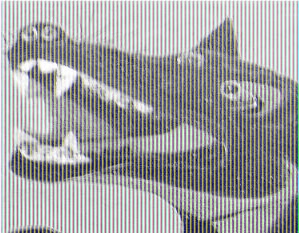BAYSTATE AND NOTICE
Critical analysis of this case involves issues of mail and proper notice. The Baystate Wing contract clearly defined the requirement for notice of termination without cause. It requires notice by hand delivery or certified mail. In this case notice was allegedly delivered by certified mail. Baystate attempts to prove this by producing a copy of the letter which is dated the last potential day of required notice according to the contract. Additionally, the CEO of the hospital filed
affidavit stating that he personally mailed the letter on the day it was written and dated. Ordinarily, an affidavit is accepted as fact, unless there is contradictory evidence, as in this case (Fleishman v. Stone, 57 Mass. App. Ct. 916, 784 N.E.2d 20 (2003) <https://app.decisis.com/decisis?crid=b7788bc7-c9b0-44d4-93b2-fbdf68491b97>. A similar letter was apparently sent to the other radiologist working at Wing Hospital. That letter was received 8 days after the reported date of mailing. Certified mail is typically sent by first-class, which takes 3 to 5 days for delivery (not 8). The fact that the letter was supposedly sent simultaneous with Dr. Allard's letter and was received 8 days after supposed mailing raises a question as whether it was indeed mailed on the date as alleged. In addition, the CEO of the hospital is an important person. As such, it is likely they delegate tasks such as traveling to a post office for posting certified mail, rather than doing so personally. Allard notes that the letter is dated, suggesting it was written on that date, but there is no certification of mailing or post office receipt. Likewise, certified mail is accompanied by a green card which is returned to the sender whether it is signed or not. This has not been produced, and its absence raises questions.
When a contract is written by a powerful party such as employer, Baystate in this case, the contract should be interpreted in favor of the employee or subservient party. See Hazen Paper Co. v. United States Fidelity & Guaranty Co., 407 Mass. 689, 700 (1990). As such, the requirement for delivery of notice should be interpreted strictly against the employer. The contract does not specify that the notice must be received when it is mailed in a timely fashion. Dr. Allard did not receive the certified letter. Nevertheless, notice is proper if it is mailed in a timely fashion. Nonreceipt can be a factor to be considered when proof of notice is contested (Commonwealth v Norman, 87 Mass. App. Ct. 344, 346-347 (2015))
Proof of mailing is prima facie evidence of receipt. Commonwealth v. Crosscup, 369 Mass. 228, 239, 339 N.E.2d 731 (1975) <https://app.decisis.com/decisis?crid=b7788bc7-c9b0-44d4-93b2-fbdf68491b97>. Allard's attorney claims that he mailed discovery to Baystate by first-class mail and certified such according to the Rules. The Massachusetts Rules of Civil Procedure state certification of mailing documents is equivalent to their having been delivered (Rule 5 b states "Service by mail is complete upon mailing."). Baystate claims that it never received these documents. In the case of notice by email, nonreceipt is considered an excuse (Rule 5(b)F). In the case of nonreceipt by mail, there is no excusable consideration. Significantly, attached to the discovery documents were requests for admission. Under Rule 36 of the Federal Rules of Civil Procedure "[a] party may serve on any other party a written request to admit, for purposes of the pending action only, the truth of any matters within the scope of Rule 26(b)(1) relating to:(A) facts, the application of law to fact, or opinions about either; and (B) the genuineness of any described documents." Fed. R. Civ. P. 36(a)(1). "A matter is admitted unless, within 30 days after being served, the party to whom the request is directed serves on the requesting party a written answer or objection addressed to the matter and signed by the party or its attorney." Fed. R. Civ. P. 36(a)(3). Had the Court ruled accordingly, Allard would not only have defeated summary judgment but won summary judgment. Granting summary judgment on the basis of admitted facts for delayed response to requests for admission are not unusual (see Foss v. Marvic 994 F.3d 57,63-64, (2021)).
So, what we have here essentially are two instances of mailing and two instances of nonreceipt. In the first instance, the notice is governed by contract law. The mailbox rule and terms for contractual notice are well discussed in University Emergency v. Rapier, 197 F.3d 18, 20-21(1999). Deadlines for notice are governed by strict interpretation. Regardless of whether or not certified mail was received by Dr. Allard, notice is valid as long as it is at least 365 days prior to the anniversary date of contract renewal. There is evidence both for and against valid mailing. It is a contested fact and therefore a question to be decided by fact-finding jury, not at summary judgment.
In the second instance, mailing of the discovery, with attorney certification of mailing, constitutes proof of delivery. When there is no answer to requests for admission, the facts are considered admitted. Even if Baystate did not receive the discovery documents, the rules require that they are considered delivered.
Summary judgment in favor of Baystate in this case is clearly error. Firstly, by ruling that there are no contested material facts, Allard's skepticism about whether he was legally noticed is unfairly rejected. There is good reason to question whether mailing took place in a timely fashion: 8 days to delivery, no mailing certification, no green card, and CEO alleging that he personally mailed. As Justice Holmes observed long ago, "evidence which would be colorless if it stood alone may get a new complexion from other facts which are proved, and in turn may corroborate the conclusion which would be drawn from the other facts." Commonwealth v. Mulrey, 170 Mass. 103, 110, 49 N.E. 91 (1898) <https://app.decisis.com/decisis?crid=b7788bc7-c9b0-44d4-93b2-fbdf68491b97>. Nonreceipt is claimed by both parties but is apparently rejected when Allard claimed he did not receive notice. Legally, nonreceipt might be considered along with the other facts surrounding notice. On the other hand, Baystate's defense of nonreceipt of discovery documents is considered by the court as proof of non-delivery, in contradiction to the rules. The inconsistent treatment of nonreceipt is obvious and prejudicial to Allard.



